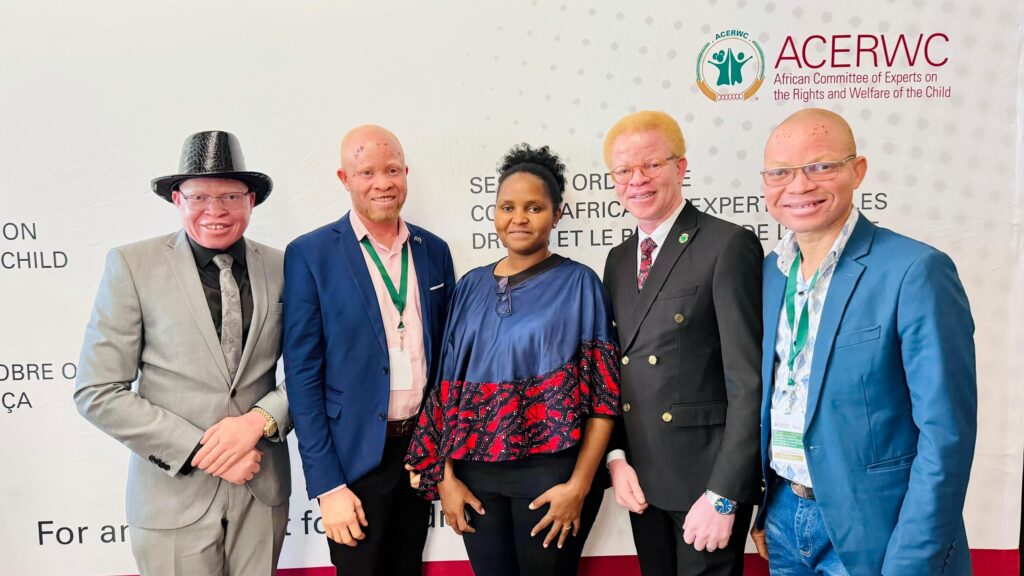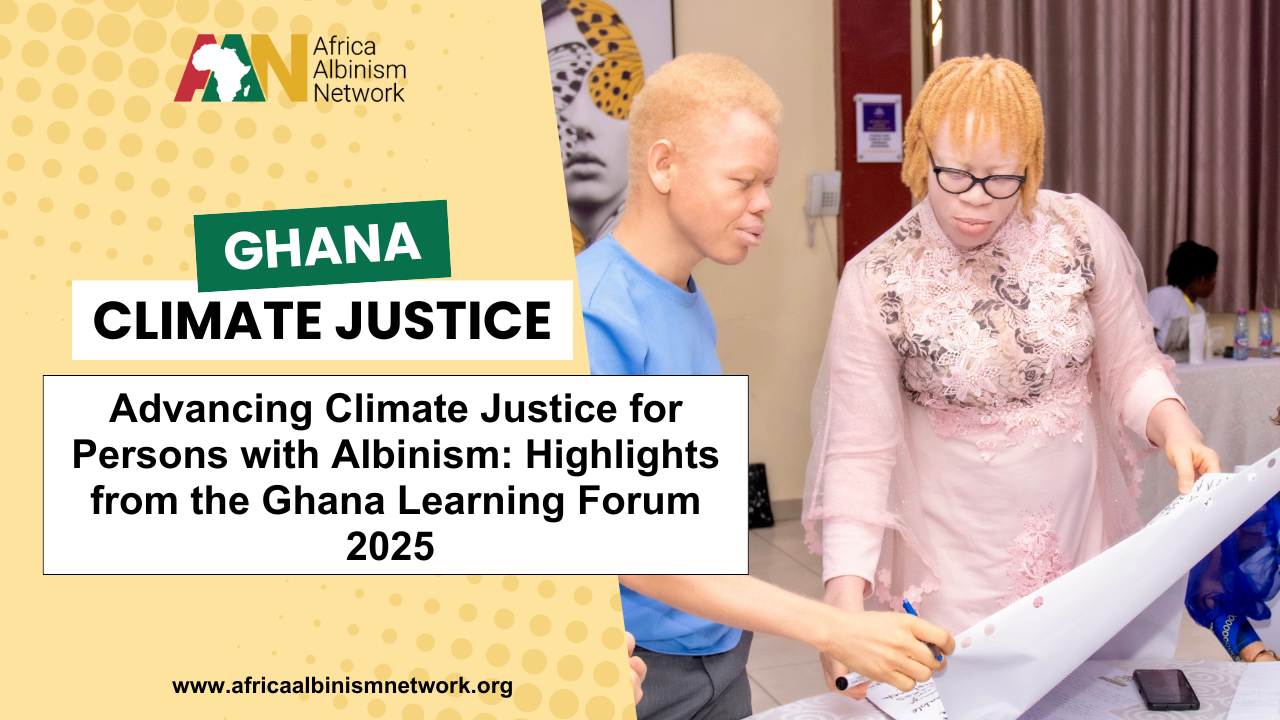In April, the African Committee of Experts on the Rights and Welfare of the Child (ACERWC) held its 43rd Ordinary Session in Maseru, Lesotho. This session was special because the ACERWC Committee decided to have a Day of General Discussion on children with albinism. Days of General Discussion are rare, and this was the first time that day-long attention was set aside to discuss finding solutions to the challenges faced by children with albinism. Before the commencement of the official proceedings of the ACERWC, my colleague and I seized the opportunity to participate in a two-day Forum for Civil Society Organizations (or CSO Forum) on the Rights and Welfare of the Child. As part of the program of the Forum, a panel session on Protecting the Rights of Children with Albinism in Africa – Challenges and Responses was held jointly by the United Nations Independent Expert (UNIE) on Albinism, Standing Voice Malawi, and Albinism Umbrella Uganda. This panel discussion demonstrated once more how stigma and discrimination rank among the main causes of the high rate of school dropouts for children with albinism.
L-R: Peter Ogik (Executive Director – SNUPA), Kwame Andrews Daklo (Advocacy Manager – AAN), Prof. Nkatha Murungi (Center for Human Rights), Bonface Massah (Executive Director – Standing Voice), Souradji Ouro-Yondou (President of ANAT).
Official proceedings of the ACERWC began on April 15, 2024, and my colleague Kwame Andrews Daklo read a Statement on the rights and welfare of children with albinism in Africa. The Statement urged member states to strengthen healthcare systems and provide comprehensive services tailored to the specific needs of children with albinism, including dermatological care, reasonable accommodation for low vision, psychosocial support, and the provision of sunblock. In the Statement, AAN commended the Committee for recognizing the unique challenges faced by children with albinism and for providing a platform to discuss and seek solutions to these issues.
The next day, Muluka-Anne Miti-Drummond, UNIE on Albinism, held a side consultation event. She spoke extensively about what her mandate is currently focusing on, her official visit to the Kingdom of Lesotho, and future plans. AAN took the opportunity to share a form where you can report cases of attacks against Persons with Albinism with all attendees so we can conduct evidence-based advocacy.
“AAN commended the Committee for recognizing the unique challenges faced by children with albinism and for providing a platform to discuss and seek solutions to these issues.”
On the Day of General Discussion: Solutions to Challenges Faced by Children with Albinism, as discussions unfolded, and children with albinism who are survivors of attacks made their presentations. It became evident that the gravity of the topic demanded a level of emotional preparedness that some delegates may not have anticipated. Despite the initial shock, the lack of preparedness ensured that the discussions were raw and unfiltered, capturing the undivided attention of the entire room. AAN was present in three of the four panel discussions, represented by delegates from Ghana, Tanzania, and Uganda. Their presentations touched on different aspects of the challenges faced by children with albinism, from physical attacks and discrimination to socio-economic rights and human rights-based approaches to advocacy for children with albinism. This last session gave me a profound sense of hope; it included strategies for empowering children with albinism to advocate for their own rights by meaningfully involving them in the design and implementation of advocacy initiatives.
First, left: Kwame Andrews Daklo (Advocacy Manager – AAN), Seated front and center: UNIE on Albinism and other delegates.
I hope that soon, the prospects for children with albinism will not be as dire as they always were or still are for many. There is a plan to integrate the testimonies of these children, their experiences, and the advocacy of other delegates present into a guideline for children with albinism in Africa. This guidance will be issued by the ACERWC in the future. We look forward to its implementation as part of other efforts toward protecting people with albinism, including the African Union Plan of Action.
“Children with albinism who have spoken today are the future of advocacy in Africa.” ~ UNIE on Albinism
It is heartwarming to know that children who have suffered discrimination and attacks are now advocates for other children. They are no longer victims but authors of a better future for themselves and others with albinism in Africa. In the words of the UNIE on Albinism, “Children with albinism who have spoken today are the future of advocacy in Africa.” This quote perfectly captures the transforming force of giving children a platform and foreshadows a time when their activism will bring about significant change.
Acknowledgments: We thank Under the Same Sun for funding our participation in this event, particularly in ensuring the participation of children with albinism and civil society activists across Africa, including those from Lesotho, Malawi, South Africa, Tanzania, Togo, Uganda, and Zambia. We also acknowledge the United Nations Independent Expert on Albinism, Muluka-Anne Miti-Drummond who ensured the Day of General Discussion was held.


